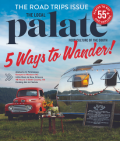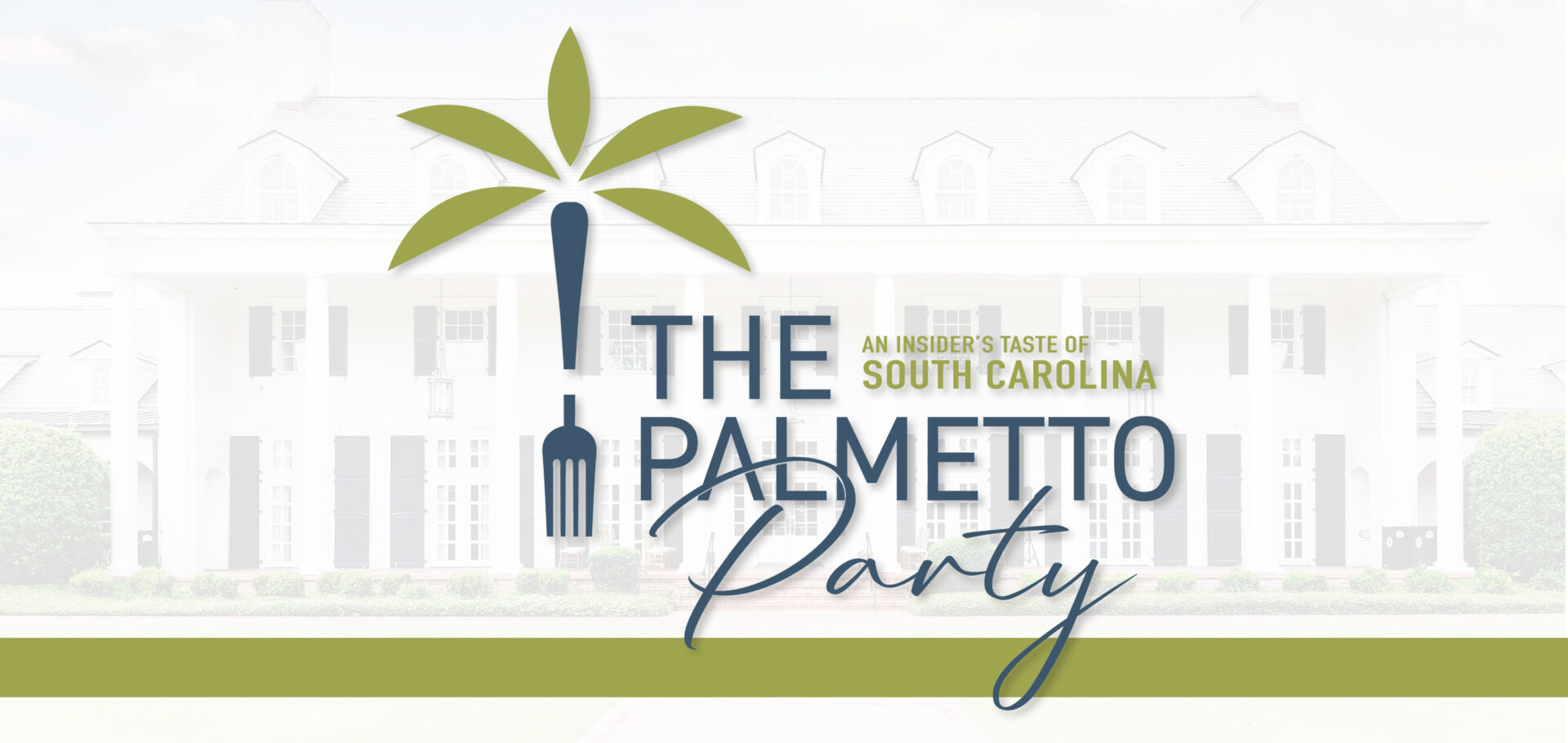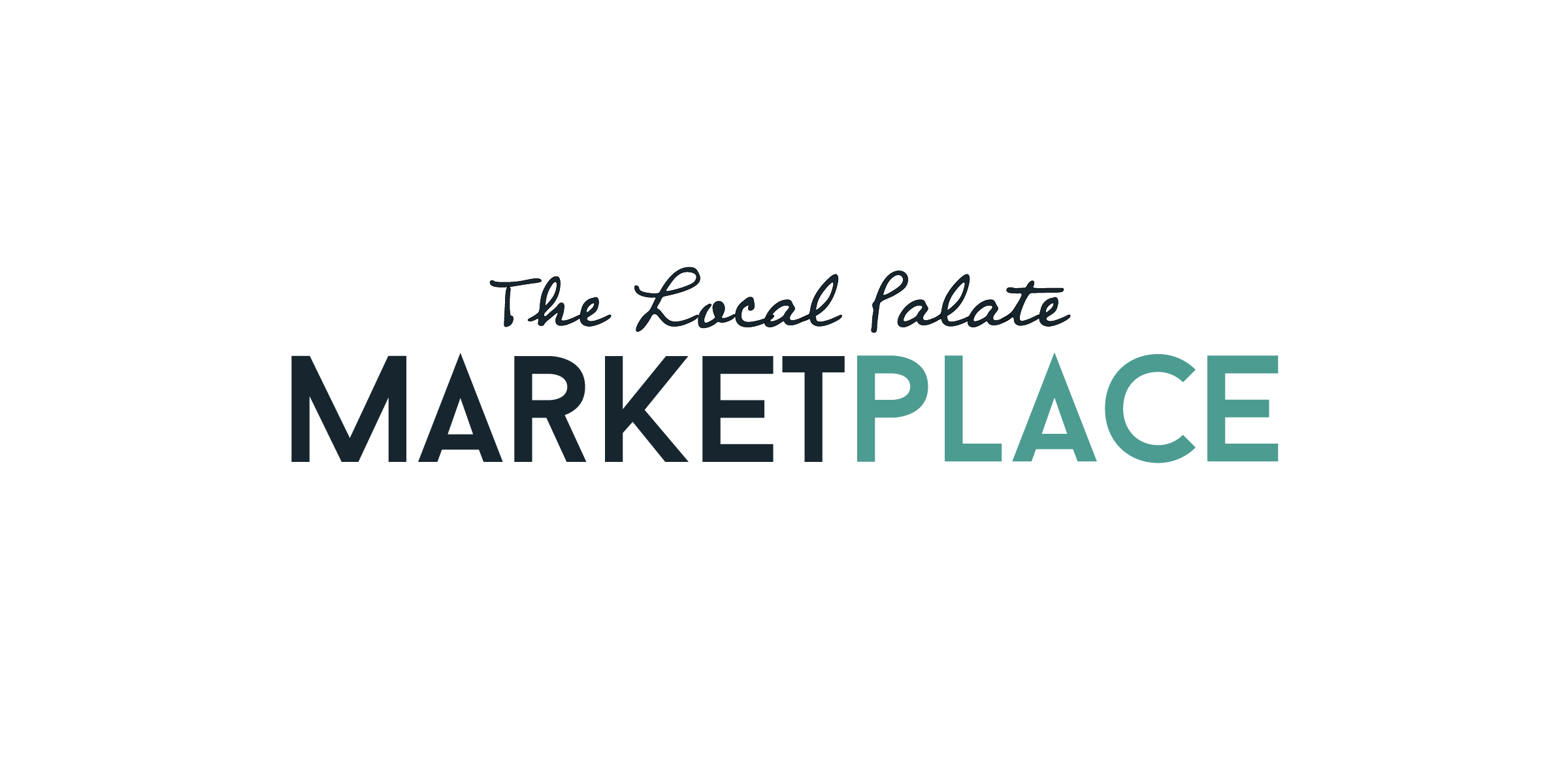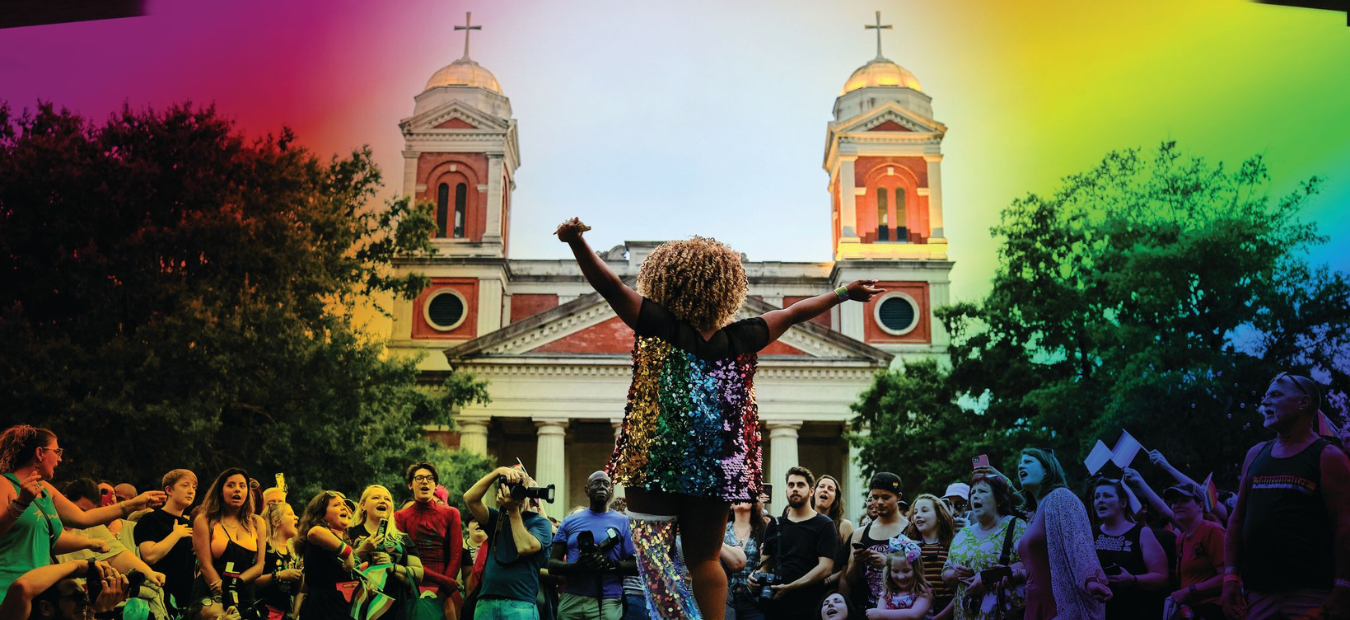Parade floats, iridescent beads, and a flood of gold, purple, and green in the early spring often make people think of the seemingly New Orleanian tradition of Mardi Gras, but they’d be shocked to learn that the carnival took root in Mobile, Alabama.
In 1703, French settlers joined in the American colony’s first iteration of Mardi Gras—a tradition that would morph into the cultural crossroads it is today that joins people from all walks of life. In the case of Mobile, Alabama, the tradition of the Mardi Gras second line parade is one that has resonated with the community the most, namely with members and allies of the LGBTQ+ community celebrating visibility.
“It’s a people’s parade first and foremost,” says Chance Shaw, a local member of the LGBTQ+ community, staff member of AIDS Alabama South, executive director of Rainbow Pride of Mobile, and housing coordinator for Door to Serenity, an LGBTQ+ affirming sober living house.
“A second line is really one that’s made up of the people of the community. That’s why we’ve chosen to do the second line parades [during Pride] because it’s something that everyone can come and participate in and be part of the community.”
But Mobile doesn’t reserve celebrating Pride for one season a year. The city’s cultural calendar is packed seasonally with events that lift the entire community and resources for struggling citizens to get back on their feet and join in the quilt of Mobile.
This past spring the city’s lineup of Pride celebrations kicked off with the first ever Trans-Lucent event in April, which ran alongside the Mobile Arts Council’s monthly LoDa ArtWalk. The event served as a celebration of transgender people—honoring the recently passed Transgender Day of Visibility on March 31—as well as an informative time for the general public in historic Bienville Square.
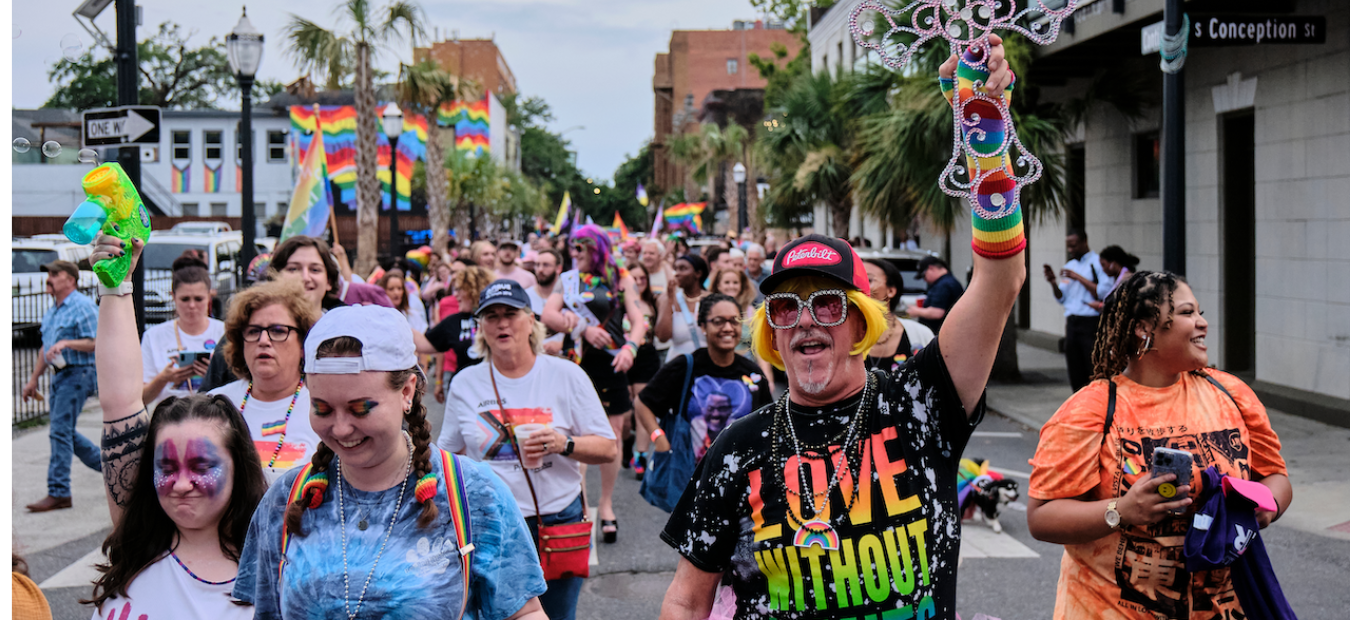
“In Alabama, over the past year especially, we’ve seen a lot of attacks on our transgender community, with things like the anti-trans bills that have been pushed through the state government and passed as laws,” says Shaw. “So we really felt the need to do something that the average person could come to and see that trans people have been here the whole time. They’re our friends, they’re our allies, they’re our neighbors.”
Booths with information from local organizations, live performances by transgender talent, keynote speakers, and Mobilians joined to honor the day.
To further enhance the visibility of LGBTQ+ citizens and symbolically mark the beginning of Pride Month, community member and activist Bryan Fuenmayor paid to have a culturally significant site in the heart of Midtown outfitted for Pride: the cannon. Positioned in the area known as Midtown, the 19th-century weapon has served as a city hallmark since the early 1900s and in recent years has been painted to support the likes of Breast Cancer Awareness Month and local football victories. For the first time in its history, the cannon was painted the colors of the rainbow in June to celebrate Pride Month—a visible symbol of the progress the city is making toward becoming a more welcoming place for the LGBTQ+ community.
The cannon’s barrel points straight toward Cooper Riverside Park, the location of the annual Pride Fest that unfolded in early June. According to Shaw, Pride Fest has taken place in Mobile since the late ’70s, first underground before emerging and opening to the public. Since he took over organizing the festival in 2016, the celebration has grown from around 500 people in Bienville Park to an event that welcomes more than 5,000 people to the river. The day is packed with music, performances, vendors, and more to mark each year as a milestone.
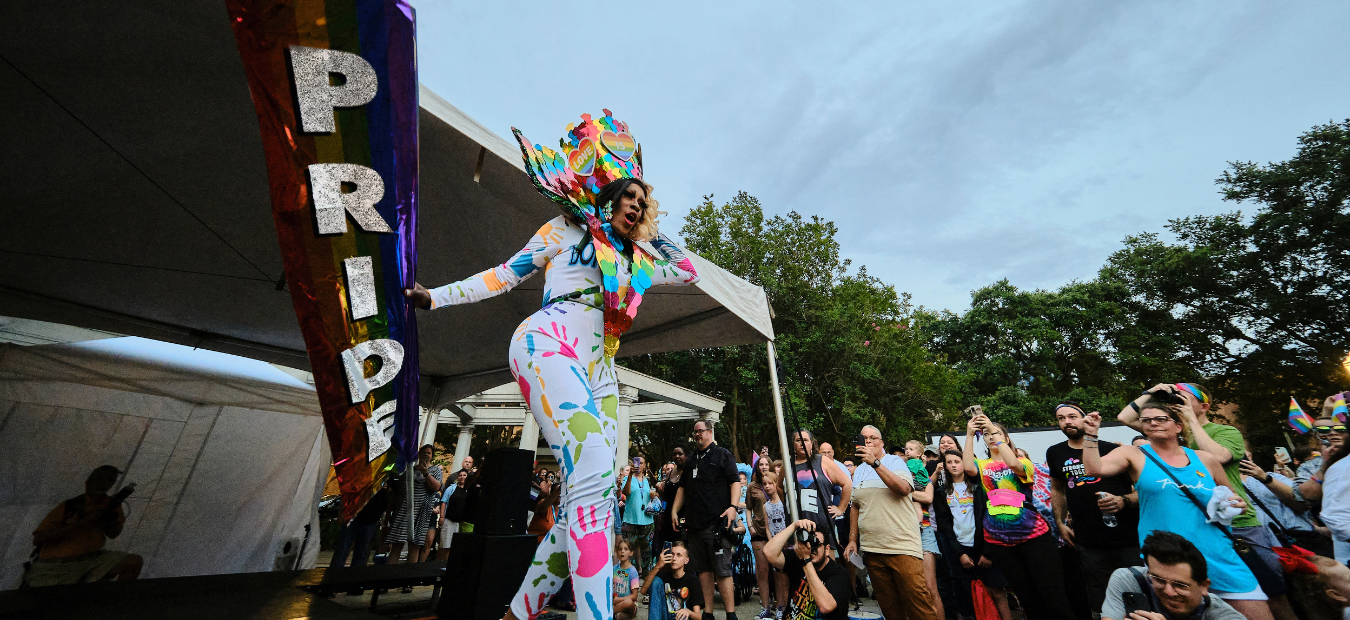
June’s monthly ArtWalk was also dedicated to Pride and went on the record as the city’s largest in history. Vocal artists along with galleries and restaurants in town teamed up to create a map of stops that celebrated the community’s LGBTQ+ residents and highlighted their contributions through various mediums. In addition to the city’s programmed and endorsed events, bars and restaurants also coordinate their own ways to commemorate Pride Month. POST Crafted Cocktails & Wine Bar, for example, hosts drag brunches monthly and features specialty cocktails—both of which sell out quickly.
Mobile is a city, too, that realizes being a member of the LGBTQ+ community doesn’t always mean celebrating; it has concrete organizations and positions in place to ensure people’s well-being when it isn’t Pride month. If you’d asked Natalie Fox what she did a year ago, she’d mention how, through her role as a health care administrator for USA Health, she worked closely with the mayor to develop a plan for the city to fight the pandemic. Through that time spent in city hall, however, Fox had the ear of Mayor Stimpson. She later invited him into her home to sit down with a group of friends in July 2021 to discuss the climate toward LGBTQ+ citizens and how the mayor could help as he neared a bid for reelection.
Later that year, Fox and fellow community member Michael Tyner were approached and asked to become the city’s first LGBTQ+ Liaisons, a role that would include streamlining events geared toward Mobile’s queer population and acting as spokespeople to the mayor on issues members faced.
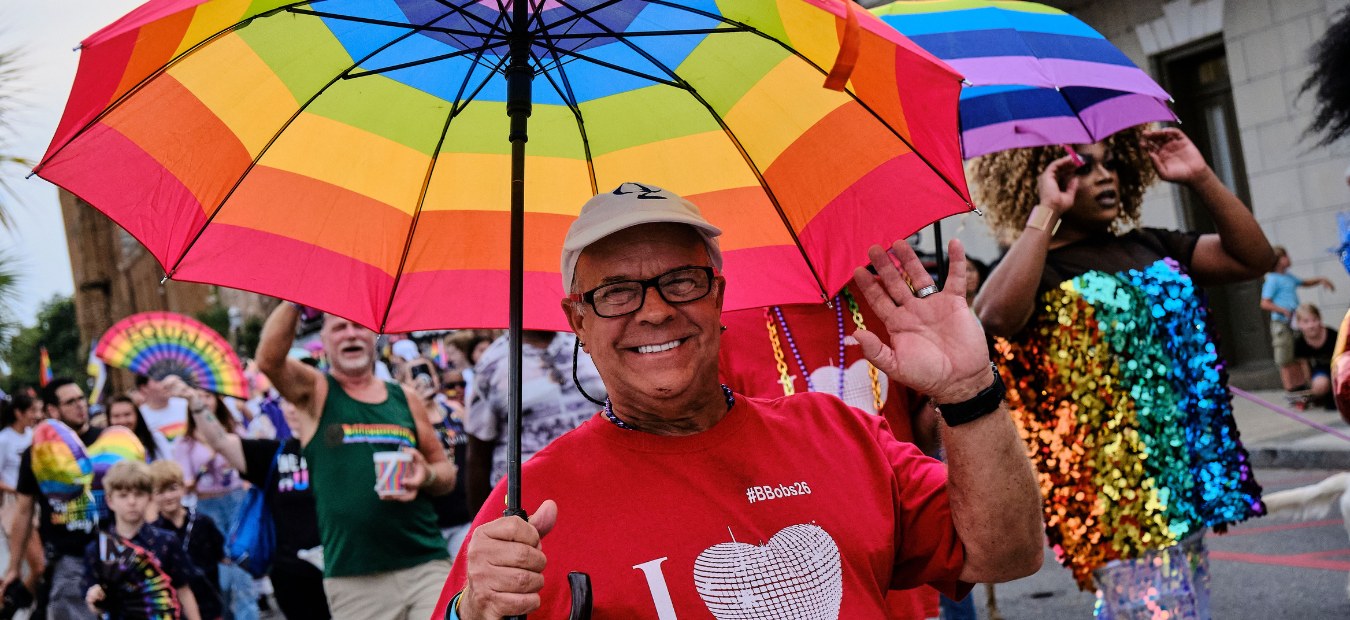
On a community level, organizations like AIDS Alabama South provide resources for prevention and treatment of HIV free of charge, while groups like Lifelines Counseling provide affordable mental health care in an affirming environment. Rainbow Pride of Mobile not only has Pride events like those along the river but also hosts trans support groups that meet monthly, manages Facebook pages for community members to connect, and plans social events like family dinner and game night that bring LGBTQ+ people together.
Mobile doesn’t claim to be perfect, but they do flex their progress. An influx of events and resources geared toward members of the LGBTQ+ community and allies continues, and the appointment of two LGBTQ+ Liaisons within the city government repeatedly proves beneficial to the city’s efforts toward becoming a more equitable place. “The community is not only thriving on a social level but an advocacy level,” says Shaw. “We’re pushing for a better Alabama, not just for the LGBTQ+ community but for everyone. If you lift some of us, you lift all of us.”
share
recently published
-
Chefs Heading To The Palmetto Party
by TLP's Partners -
A First Look at Fancypants | Listen
by Erin Byers Murray -
How to Build the Perfect Cheese Board | Video
by Maggie Ward -
5 Things to Do in Bath County, Virginia
by TLP's Partners -
Bearing Fruit at Big Apple Inn
by Erin Byers Murray
more from Partnered
-
Simplicity in Eccentricity in the Keys
-
Florida Recipes to Transport You
-
The Fall and Rise of Florida Oysters
